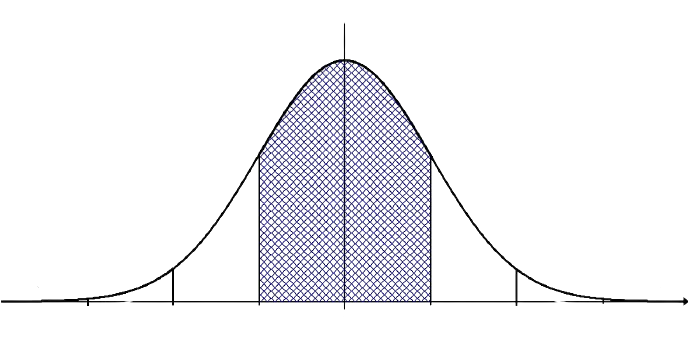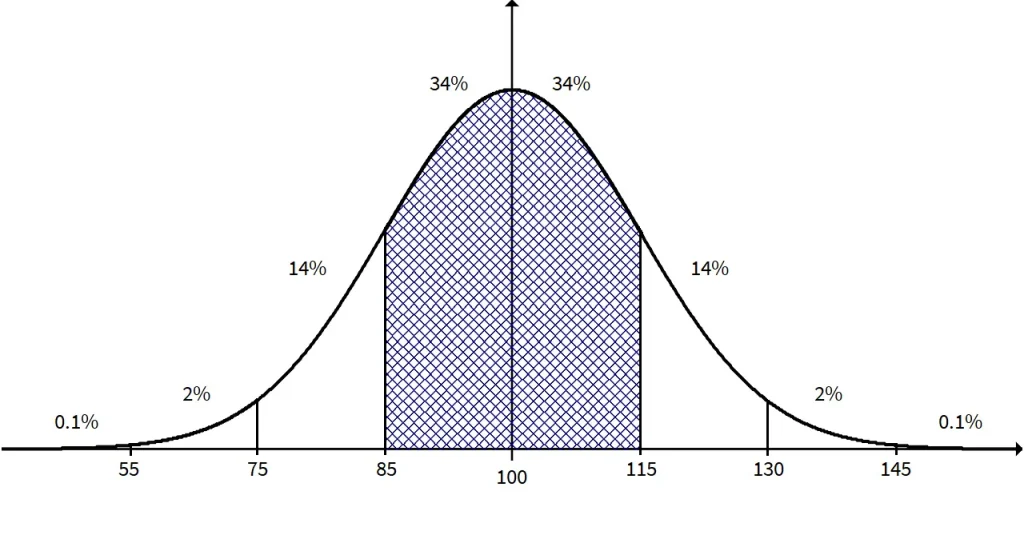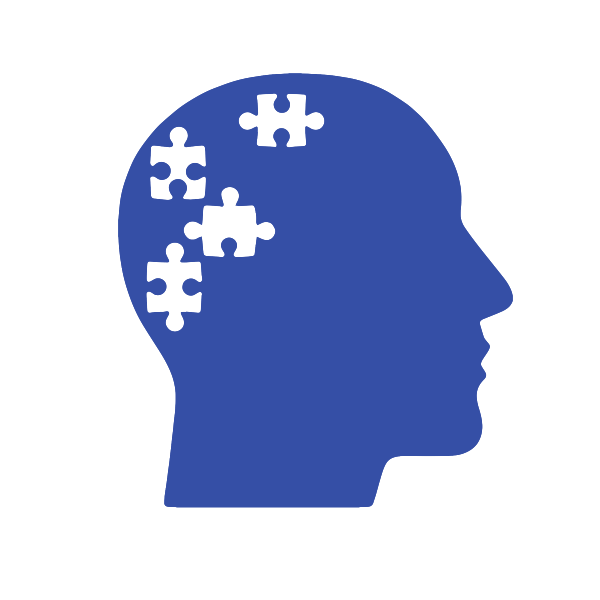IQ SCALE –WHAT DOES MY IQ SCORE MEAN?
What does my IQ score mean? What is considered a high IQ? And what is considered an average IQ?
You might have taken our IQ test – or maybe a different one, but if that is the case, you are missing out!- and you might probably be full of doubts about the meaning of your IQ score.
I scored 120 on an online IQ test, is that low or high? What does my IQ score mean exactly? Well, let’s find out!
Full IQ Scale:
IQ score ranges:
| IQ scale | Interpretation of IQ score | % of population |
| above 130 | Very gifted | 2.1% |
| 121-130 | Gifted | 6.4% |
| 111-120 | Above average intelligence | 15.7% |
| 90-110 | Average intelligence | 51.6% |
| 80-89 | Below average intelligence | 15.7% |
| 70-79 | Cognitively impaired | 6.4% |
Let’s go step by step. In order to understand what all of this means, first you need to understand some basic concepts about IQ scales and IQ assessment.
How is my IQ score calculated?
IQ scores are calculated based on your RELATIVE performance (relative to the performance of other test-takers) in a series of psychometrically valid and reliable intellectual ability items.
Note that I capitalized the word “Relative”. Here’s the gist of the matter. Your IQ score is not an absolute, it is not like a grade you would get in an exam; the scale itself is based on and constructed from the performance of the overall population.
In other words, in an exam, a panel of experts (your teachers) decides what the minimum passing criteria (the mínimum number of items that must be answered correctly) are, for instance, if you answer 5 questions correctly out of a total of 10 questions, then it might be considered as a passing score.
However, in psychological assessments, these criteria are based on the performance of the overall population, it is from it from which the scales are derived. What psychometricians basically do is construct a test and administer it to a sample that is large enough and that is representative of the overall population. Next, they statistically analyze the results, and they calculate the mean number of correct answers, among other indicators. They basically calculate the percentage of people that have gotten N number of answers correct, and based on that, they construct the IQ scales. For instance, they know 5% of their sample got 0 answers correct, another 7% got 1 answer correct, and so on. This way, they also know a 12% of their sample answered 1 or fewer answers correctly, that is what is called a percentile. The percentile is just the percentage of people who scored lower than or the same as you. In this case, if you only got one question right, you would be in the 12th percentile.
Psychometricians calculate the percentile that corresponds to each determined number of correctly answered items, and that will basically be your score.
If 70% of the population can’t get more than 15 answers right, and you got 15 right, then you are in the 70th percentile, you performed better than 70% of the population.
Wait, but my IQ score is different, it is not a percentage, what is going on?
Don’t panic. IQ scores are essentially percentiles, they have just been mathematically transformed into a different numerical scale to make their understanding and use easier. Each IQ score is equal to a unique percentile. Keep reading to find out how this scale works exactly.
In sum, what IQ is is just a quantification of your intelligence relative to the intelligence of all the other people in your same cohort.
What is the meaning of the IQ scale?
Its meaning is very straightforward; the IQ scale follows a normal distribution, usually with a mean of 100 and a standard deviation of 15. If you scored 115 you are smarter than 84.13% of the population, if you scored 130 you are smarter than 98% of the population. Each score has an equivalence in percentiles. Therefore, each score in this scale also indicates and equals the proportion of test-takers that performed equally well as or worse than that given score itself.
In order to understand how IQ scores work, you also need to understand how the normal distribution works.
The normal distribution is what statisticians have called the way data is distributed in certain phenomena. If represented graphically, it would look like a bell, with most of the data points (that is, most of the occurrences) clustered in the center, around the mean.

IQ follows a normal distribution. This means that, in intellectual assessment tests, most people will get a similar number of correct answers, and this proportion gets lower and lower as we move backward or forwards.
Both parts of the distribution are also symmetrical. Roughly speaking, this means there is the same percentage of people who answered 0 items correctly as that of the people who answered all the items right; there are the same amount of people with an IQ of 70 as with an IQ of 130.
On the IQ scale, 100 is the mean and the standard deviation is usually 15. Remember these two numbers have been set arbitrarily, by convention, they are extracted by performing a series of mathematical operations on the raw data of the test (on the raw number of correct answers each user got).
But how is the amount of correct answers converted into IQ scores, into the actual IQ scales?
The calculation is very simple. The only thing they do is, once psychometricians know the mean and the standard deviation of the number of correct answers, they do:
[(Your score – the mean) / the standard deviation] * 15 + 100
15 and 100 are numbers that are set by convention. With the first part of the formula, we get the number of times your score equals the standard deviation, or in other words, the degree to which your score estranges from the mean. For instance, if it equaled 2, that would mean your score is 2 standard deviations away from the mean. Next, by multiplying that value by 15, we are essentially giving a numerical form and content to the standard deviation; we are deciding that the value of the standard deviation will be 15 from now on. Then we add the new value we want for the mean, 100, and we are done, we have a new numerical mean and a new numerical standard deviation; we have converted everything into a new scale.
From this, we get that the actual IQ distribution that is usually used is the following:

Well, you already know what all of this means from a mathematical point of view. You already know what your IQ score quantifies exactly. However, still, what does your IQ score mean? What implications does it have? Keep reading
So I scored 100 on an IQ test, in the mean, what does it mean?
It means that your performance is average, you have average intelligence, and you get the same number of answers correct as most of the population.
I scored 115 on an IQ test, what does it mean?
First of all, it means you should take our IQ test too. Jokes aside, it means you performed better than 84.13% of the population, you are smarter than that percentage of people. You will have a tremendous intellectual advantage in life, however, there are still job occupations or certain fields that might be out of reach. Your ideal job occupations are:
- Sales manager
- Teacher
- Analyst
- Accountant
- Manager or supervisor
- Among others.
I scored 120 on an IQ test, what does it mean?
It means you are smarter than 90% of the population. You are almost 1.5 standard deviations above the mean, that’s a lot! Only one out of 10 people have an IQ equal to or greater than yours. You can definitely get very far in life and achieve as much as you want. You can learn languages with ease, you can learn new intellectual skills very rapidly, and you can acquire knowledge at an amazing pace. You can definitely innovate and become an eminence in your field of expertise. You can easily become a:
- Physicist
- Chemist
- Engineer
- And perform well in any scientific field.
I scored 130 on an IQ test, what does it mean?
You are smarter than 98% of the population. You are two standard deviations above the mean. You have always probably been the smart kid in your class. Only 1 out of 50 people are equally smart or smarter than you. You can achieve exceptional success in any field you consecrate yourself to (this will also depend on how that intelligence/g is spread across all your other intellectual aptitudes, like your linguistical ability, your spatial intelligence, your numerical ability, among others). However, you still have some limitations. You will probably be the best or one of the best ones in your close circles, but getting to be the best or one of the best ones in your entire field will not be so easy (of course, we are speaking in general terms).
I scored more than 140 on an IQ test, what does it mean?
It means you are a genius. You are at the 99.62 percentile and beyond, which means you are smarter than 99% of the population. You have the potential to become one of the best ones in your field; of becoming a historical figure in it, of leaving behind your passage exceptional and significant contributions to human knowledge. You can succeed in any field you want. If at the 130 IQ level, success would depend on how that intelligence manifests/spreads itself across the different subintellectual abilities (numerical ability, spatial intelligence, and linguistical ability), at the 140 IQ level you have enough of any of those subintellectual abilities, enough to become highly successful in any field you want. You can easily get A+ without much effort, but do not let your guard down, you can still fail exams and get stuck from time to time. As a child, your intellectual prematurity was obvious. At school you got bored, you didn’t do any studying at all and you still got As. However, when you entered university, you realized the same did not apply anymore, you might have surprised yourself failing some exams due to your overconfidence.
I scored more than 150-160 on an IQ test, what does it mean?
You are at the 99.9 percentile, that is, you are smarter than 99% of the population. At the 130 IQ level, it is possible to skip one grade in school. At the 140 IQ level, it is possible to skip one grade or two. At the 150-160 IQ level, you are a point at which you have the potential to start university at a very young age, maybe at around 12-14 (it will depend on the degree you want to pursue). You are an exceptional genius, and you have the potential to leave great contributions to human knowledge and culture from a very young age. You can land a job anywhere you want.
References:
https://www.researchgate.net/publication/222654097_Education_Wechsler’s_Full_Scale_IQ_and_g
Author:

Muhammad Ovais is Ph.D. from Chinese Academy of Sciences (CAS), National Center for Nanoscience and Technology of China. His research interests are in Neurodegenerative diseases, Nanomedicines and Biomaterials. He is the recipient of over 30 international awards including, 2019 Outstanding International Researcher by the Ministry of Education, China and 2019 Premium Award for Best Research Paper by IET-Institution of Engineering and Technology, UK. He owns to his credit over 60 scientific articles including research studies, reviews, editorials and book chapters in peer-reviewed journals/publishers such as, Advanced Materials-Wiley, NanoToday-Elsevier, Nanomedicine-Future Medicine, with h-index of 30. He is the co-founder of Synthon Nanotech, a Netherlands based Startup Company developing peptides and also working as a Tech Ethicist for a US based company GenoEmote; that is developing novel Brain-Computer Interface technologies.




